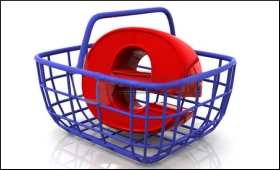|

|
Assisted e-commerce players to tap huge offline market
|
|

|
|
| Top Stories |
 |
|
|
|
Mohammed Shafeeq | 01 Dec, 2015
The trust a kirana merchant enjoys in the neighbourhood and the preference of Indian consumers to come in direct contact with sellers is opening the doors of next big wave in e-commerce - the assisted e-commerce.
With the big boys virtually exhausting the online shoppers, the focus is now on the new space to reach the people who are either not on internet or don't shop online.
With just 12 to 15 percent of the 300 million internet users shopping online, the real commerce has a huge opportunity. The players in this emerging space bring together offline buyers, local retailers and sellers to an integrated platform and reach where the e-commerce players are facing the hindrance.
From t-shirts to television sets and mobile phones and from recharges to utility bill payment to money transfer and bus ticket booking, they offer an entire range of consumer goods and services.
This space offers an opportunity to millions of small merchants to go high-tech and make additional income. They make the purchase on behalf of their customers, who will be assured of the quality of the products while sellers will be able to save a lot on logistics and reverse shipping expenses.
While there are many players for recharges, there are only two or three companies in assisted e-commerce and they are all from south.
Bringing together various stakeholders, they are coming out with a solution for the typical Indian market where the majority of customers still prefer to buy from the kirana store next door rather than buying from somebody they don't know.
"More than feeling the products while buying, Indian customers want to buy from someone they trust and to whom they can go back and ask in case of any problem," Krishna Lakamsani, founder and CEO of iPay, told IANS.
In a short span of 18 months iPay has emerged as the most powerful leader in this space with 7,000 retailers in Andhra Pradesh, Telangana and Karnataka, serving about five million customers and offering over 4,000 products and also various services.
"Every second, eight customers walk into our stores and one purchase happens. We acquire a new customer every four seconds," said Krishna, who was associated with an e-commerce company in the US before returning to India to try something different.
"I invested my personal money of $3 million. Today our Gross Merchandise Value (GMV) has touched Rs.120 crore per month," said Krishna, who has set a target of reaching Rs.400 crore to Rs.500 crore GMV.
Krishna explained how iPay is helping create new distribution network for products. "A retailer in Srikakulam (Andhra Pradesh) doesn't come to Hyderabad to pick up Karachi Bakery biscuits nor Karachi Bakery has distribution network in Srikakulam, but we help him get the product there," said Krishna.
The company pays a commission of 2 to 14 percent on the products to retailers, depending on the category of products.
He believes everyone has to take the offline route. Alibaba launched offline commerce last year while Amazon made an announcement recently. Flipkart and Snapdeal are also going offline.
"We are helping customers go online indirectly if not directly. We are there in the last mile," Kiran Gali, founder and chief executive officer of NumberMall, told IANS.
Kiran believes this model offers a huge opportunity to take e-commerce to masses. "There are 14 million small merchants in India who touch every one of us every day. They could be kirana shops, medical stores, fancy, stationery or pan shops."
"E-commerce is only for the top pyramid. Only 50 million people in India buy online. Even in an advanced country like the US it is hardly 20 percent," he said.
What is hindering e-commerce penetration is the difficulty in reaching pin codes in small towns and villages and with their network, players like ipay and NumberMall can reach the unreached.
Started in 2011, NumberMall is a pioneer in the space with its technology platform. Today it has 16,000 small merchants on its platform in 10 districts. What sets it apart from others is that a merchant doesn't have to buy its software. The free app can be used from mobile, laptop or PC for transactions.
NumberMall is offering eight services, but recharges account for 40 to 45 percent of the transactions. With GMV of Rs.15 crore a month, it plans to bring a wide range of products on its platform within a month.
Bootstrapped by Kiran, the company raised $1 million and plans to raise $10 million more this financial year to fund its expansion.
(Mohammed Shafeeq can be contacted at m.shafeeq@ians.in)
|
|
|
| |
|
|
|
|
|
|
|
|
|
|
|
|
|
|
| |
| Customs Exchange Rates |
| Currency |
Import |
Export |
US Dollar
|
84.35
|
82.60 |
UK Pound
|
106.35
|
102.90 |
Euro
|
92.50
|
89.35 |
| Japanese
Yen |
55.05 |
53.40 |
| As on 12 Oct, 2024 |
|
|
| Daily Poll |
 |
 |
| Do you think Indian businesses will be negatively affected by Trump's America First Policy? |
|
|
|
|
|
| Commented Stories |
 |
|
|
|
|
|
| |
|